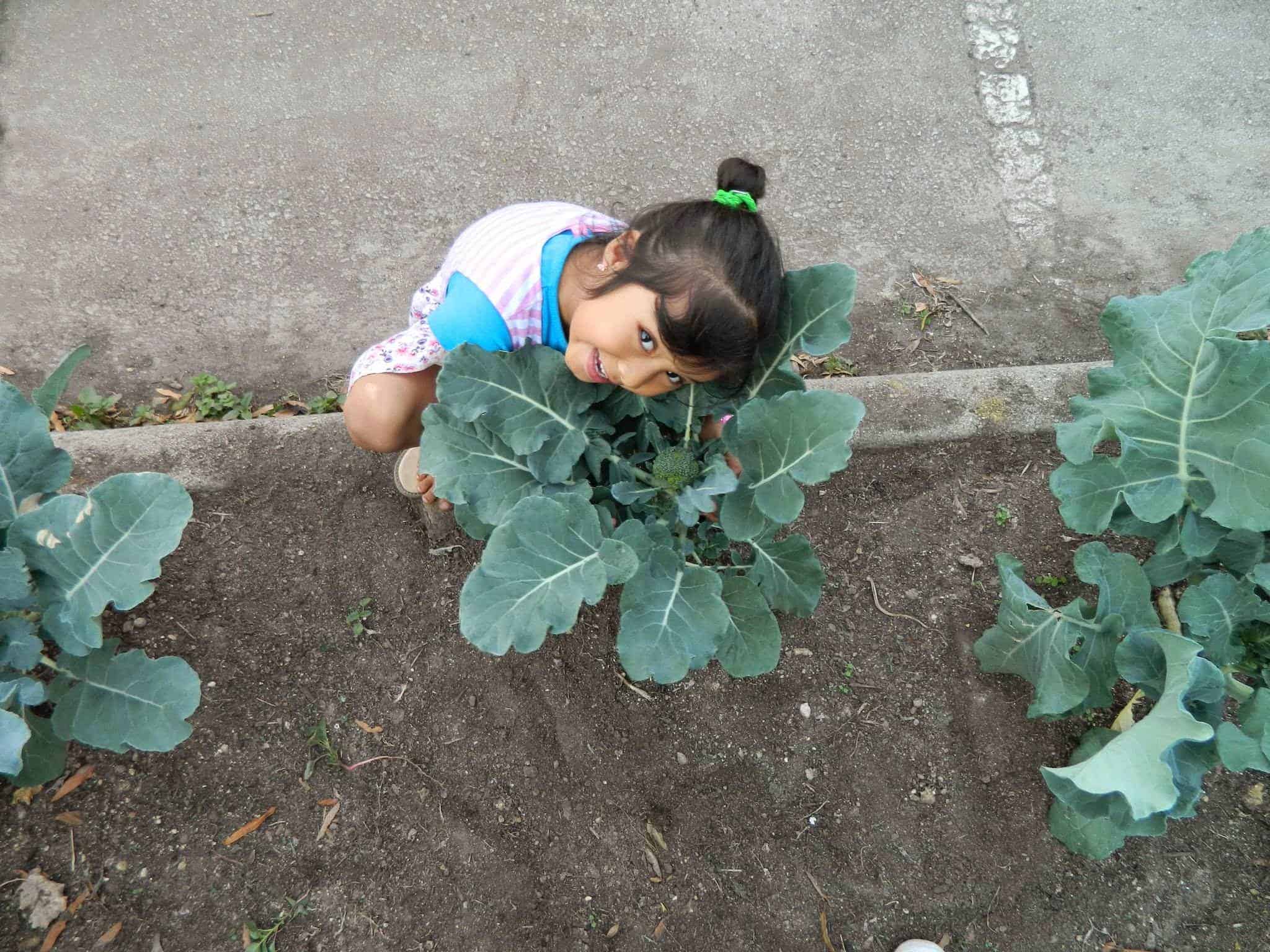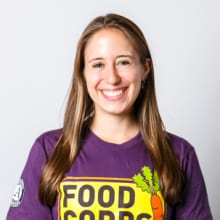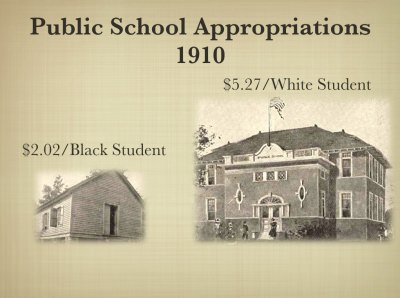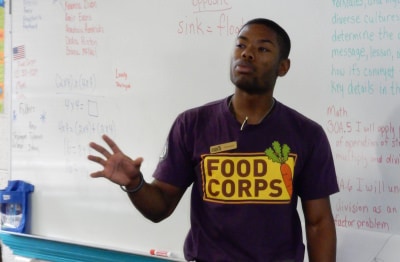“I feel like I’m trick or treating!” Rose yelled as she carefully snapped off a head of broccoli and placed it in a produce bag. Rose – a first grader with a smile cute enough to manipulate any adult into tying her shoe even though she knows how – had planted the transplants and watered and weeded the garden. The result – a sea of bright green leaves and big, beautiful broccoli flowers – was sweeter than candy.
In September, I began teaching Rose and hundreds of other children in Guilford County through FoodCorps, a national nonprofit whose mission is to connect kids to healthy food. Throughout the country, FoodCorps service members partner with limited-resource schools to engage children in nutrition, cooking, and gardening education and to increase access to real food in the classroom and the cafeteria. FoodCorps Guilford County partners with seven elementary schools with the support of Cooperative Extension and 4-H.
Last year, the Food Research and Action Center ranked Guilford County the number one city in the nation for food hardship;
in many neighborhoods throughout the county, it is difficult or impossible to access healthy, affordable food.
Every child I serve is eligible for a free breakfast and lunch each school day, but for many, there are few or no options for fresh meals outside the school walls. Because of this, families must often resort to whichever packaged snacks are available at corner stores and food pantries, so hunger and obesity often go hand-in-hand.
FoodCorps combats this obesity-hunger paradox by empowering children to grow, cook, and eat fresh food. In her first-grade class at Allen Jay Elementary, for example, Rose and her peers spent last fall growing a garden based on the Stone Soup folktale. The students planted carrots, collards, broccoli, and herbs, and we spent several months learning how to make a pot of Stone Soup. Our “recipe” started from the very beginning with planting the seeds and amending the soil, and when our veggies were ready, students learned harvesting techniques, and practiced knife skills.
In December, six classes worked together to create a hearty pot of Stone Soup for more than 100 students and teachers to share. As the students tasted the soup using their five senses, one boy yelled out, “It smells like my nana’s stew!” and another said, “It tastes sweet!” Only one student was displeased, protesting, “But I didn’t get any collards in mine!” A year later, Rose, now a mature second grader, tells me each week that Stone Soup is still her favorite soup.
Food education like our Stone Soup project can alleviate health problems and food insecurity at the same time. Since Rose grew a garden at school, she was more likely to inspire her family to grow food at home, which would save money at the grocery store. Since she participated in the cooking process, she was more likely to eat the healthy beans and veggies. Since she was repeatedly exposed to broccoli in her garden, she was more likely to ask mom or dad to purchase some at the grocery store. And since she learned to love vegetables at such a young age, Rose will continue her healthy habits for years to come.
FoodCorps serves only seven of 127 schools in the district, but we are surrounded by local heroes who work tirelessly to improve food security and food education throughout Guilford County. Master Gardener Volunteers spend weekdays digging in the soil with kids and weekends building community gardens. The Greater High Point Food Alliance hosted the city’s first-ever food summit in March and set attainable goals to improve food access and education. Rock and Wrap it Up and Out of the Garden Project rescue unused food from dozens of schools to distribute to churches and nonprofits. And the School Garden Network provides mentorship and trainings to teachers and volunteers.
Although I am proud of the changes I see every day, the statistics have shown that food insecurity in Guilford County has only gotten worse in recent years. If we want to create a just and sustainable food system, we can all play a part in the effort. There are plenty of ways to get involved – volunteer to help a local hero in your neighborhood, join a community garden, or support a local farmer.
You’d be surprised how wide of an impact you can have by starting small.





